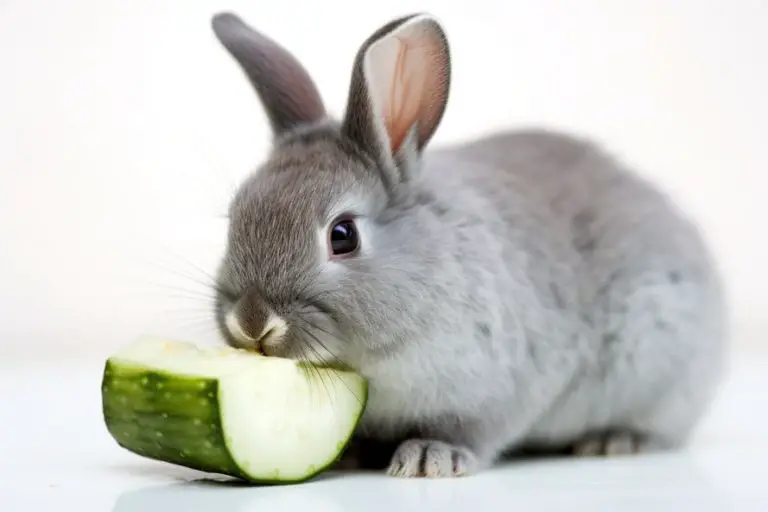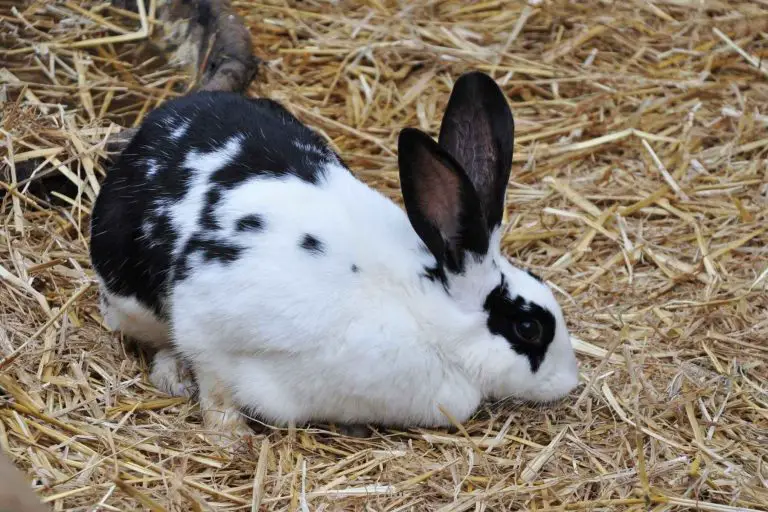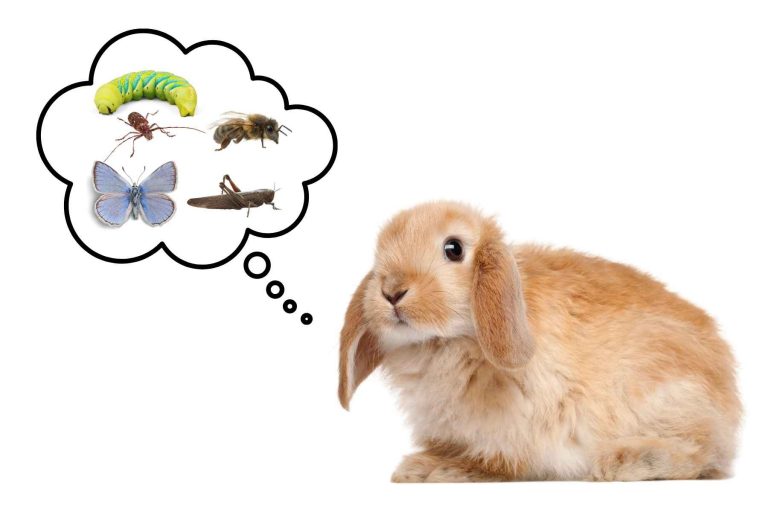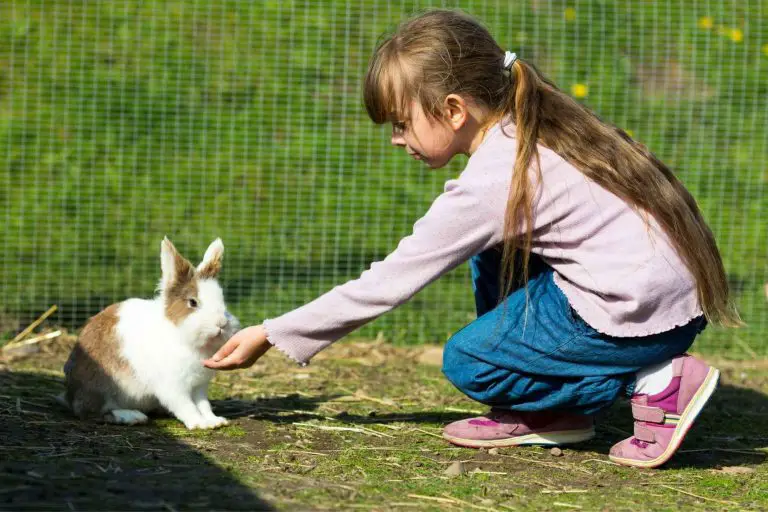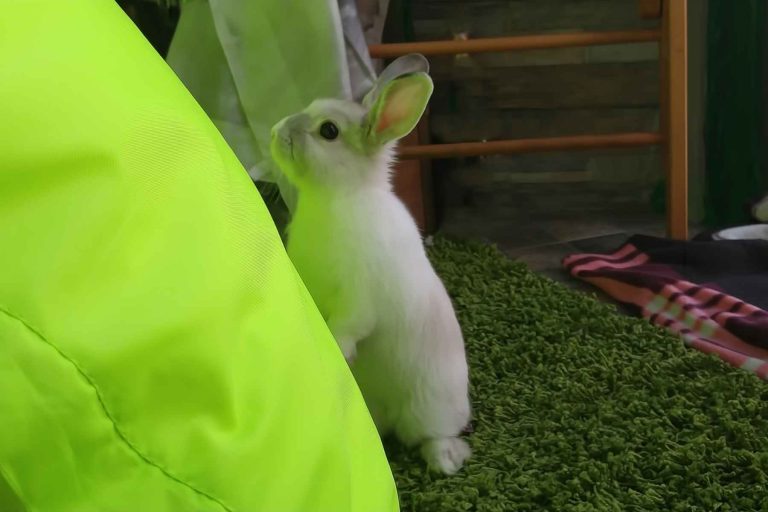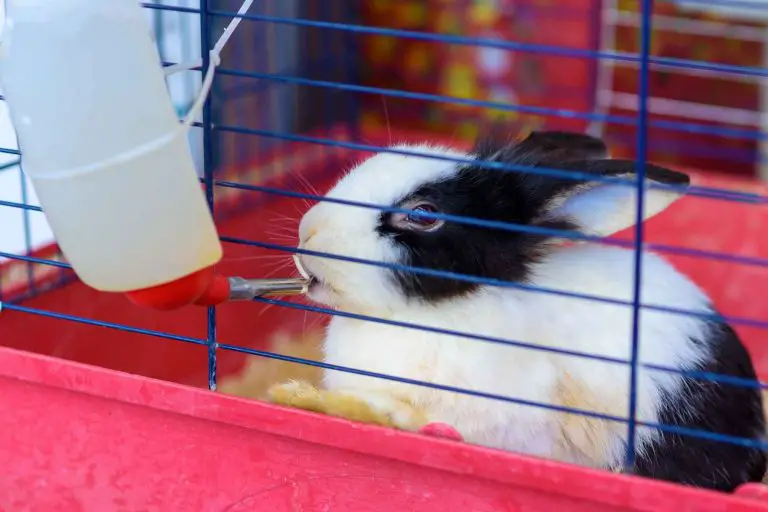Can Bunnies Eat Raspberries?
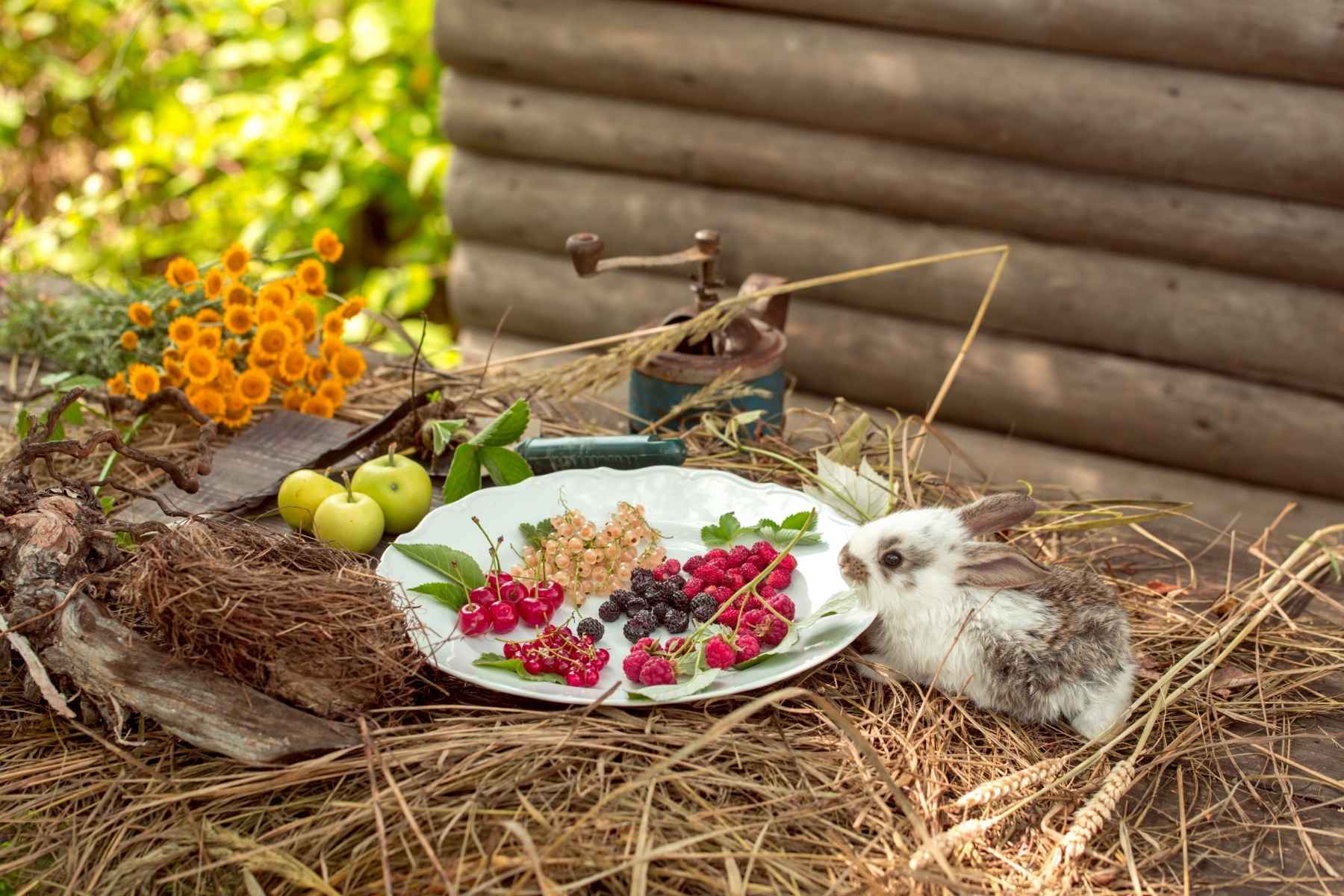
If you’ve been thinking about sneaking your furry little family member – your rabbit – some raspberries but weren’t sure whether it was the right thing to do, you’ve come to the right place.
Many rabbit owners get nervous about giving their bunnies anything that isn’t “vet approved.” Rabbits can have a bit of a delicate constitution when reacting to new foods, but you don’t have anything to worry about with raspberries. Tame, domesticated rabbits love them just as much as wild ones do!
Below we get into the ins and outs of whether or not bunnies can eat rabbits (spoiler alert – they can!). We cover the nutritional value and benefits raspberries bring to the table and cover a couple of other little bits and bobs to help you safely feed these sweet treats to your rabbit.
Let’s jump right in!
Can Bunnies Eat Raspberries?
You bet they can!
Beloved for their sweet taste, bunnies and humans alike just can’t get enough of raspberries, especially when they are fresh, ripe, and just bursting with flavor.
Wild rabbits are known to scour whole neighborhoods and communities to find any berry bushes they can, munching on raspberries well before they come into season (and eating them well after most people would pass on them, too).
You’re not going to have to worry about throwing the delicate digestive biome of your bunny off if you sneak them some raspberries every now and again.
In fact, you’re probably going to be giving them a bit of a health boost with these sweet treats (though you need to be careful not to go overboard all the same).
Benefits Bunnies Get Eating Raspberries
Yes, there are some pretty significant health benefits that bunnies will enjoy when they start eating raspberries on a semi-regular basis.
Raspberries are a superfood for these fuzzy little cotton balls, flooding them with all kinds of vitamins and minerals and giving them a significant boost in the antioxidant and magnesium department.
Let’s get into that a little more.
High Levels of Antioxidants
Antioxidants are incredibly effective at fighting off free radicals throughout the body, nasty little things that can lead to inflammation and cancer.
Raspberries are rich in antioxidants (particularly anthocyanin). These antioxidants are highly bioavailable, readily digestible by rabbits, and easily absorbed into the bloodstream, where they can do the most “heavy lifting.”
Great Source of Magnesium
Bunnies (just like people) need plenty of magnesium to keep them healthy and happy, making sure that their metabolism is firing on all cylinders and allowing them to produce the fuel they need to lead happy and healthy lives.
On top of that, magnesium works well to offset excess amounts of calcium that can build up in a bunny’s body. Too much calcium can lead to blood clots and a whole host of other serious problems that you don’t want plaguing your furry family member.
Raspberries will supplement the magnesium that rabbits get daily from their feed. Rabbit pellets and hay are loaded with magnesium, and raspberries will add a little extra to ensure that your bunny is getting all they need.
Flood of Important Vitamins and Minerals
On top of antioxidants and magnesium, raspberries will deliver a payload of essential vitamins and minerals your rabbit might have otherwise been deficient in.
We are talking about a ton of Vitamin A, Vitamin B6, Vitamin C, Vitamin K, calcium, manganese, and potassium.
Ideally, your rabbit is going to be getting a lot of these same vitamins (and more) in the food that they are eating on a daily basis. But it never hurts to give them a little extra jolt, especially when that health payload comes from something as delicious as a raspberry!
Age Matters When Feeding Bunnies Raspberries
While we’ve told you that bunnies can safely eat raspberries every now and then (strictly as a treat), you must make sure your bunny has reached a certain age before you start sneaking it little bits of fruit.
Baby rabbits (and juvenile rabbits) don’t need their regular nutrition thrown out of whack when they are still in the developmental stages.
Sure, it makes sense on the surface that you’d want to give these developing animals as many nutrients as possible in this critical phase of life.
But the feed you are giving your bunny will have all of those bases covered, and too much of a good thing can become too much of a good thing – even if it doesn’t look like much with just one or two raspberries now and again.
Wait until your bunny is full-grown and fully developed before you start to mix raspberries into their food bowl.
On top of that, it’s a good idea to start slow – one or two berries at a time – to gauge their reaction. The last thing you want to do is cause digestive upset for your bunny while trying to give them a nice little treat.
Treat Raspberries Like a Treat
Secondly, you really (REALLY) need to embrace the idea of using raspberries like a treat and not as a meal substitute or meal supplement.
Raspberries are not something you want to be stuffing your rabbit for love on a day-to-day basis.
No, you want to use the streets as a treat. Once every couple of days (maybe two or three times a week) is frequent enough to reward your bunny with something sweet and nutritious, but not enough for the raspberries to cause any digestive upset or other problems.
On top of that, you don’t want to be “mixing and matching” fruits and veggies on the same day.
If you have already given your rabbit a treat with a different kind of fruit or another vegetable, make sure you’re not doubling up with raspberries on the same day. You want to stretch this out, ensuring that they get the bulk of their nutrition from their “normal food.”
Does Frozen or Fresh Matter?
Many people operate under the impression that fresh and frozen raspberries are precisely the same thing, just held at different temperatures.
How these fruits impact your rabbit, though, nothing could be further from the truth.
You might not notice that much difference – frozen raspberries tossed into a protein shake or yogurt taste precisely the same as fresh if they’ve been given a little time to thaw. But frozen raspberries almost always have higher sugar content, and that’s never good for bunny rabbits.
If you are going to give your bunny raspberries, try and make sure that they are as fresh as possible.
If you absolutely, positively can only get access to frozen raspberries, you need to dial back the number of raspberries you give your rabbit as well as the frequency. Do not try to swap frozen for fresh as a 1:1 replacement.
You’ll end up wreaking havoc on your animal!
What About Dried Raspberries?
On the other hand, dried raspberries are a great alternative to fresh ones if none are available.
Dried raspberries are just dehydrated raspberries, with no extra additives, no extra preservatives, and nothing else thrown into the mix.
Sure, you’ll want to confirm that the dried raspberries you are feeding are 100% raspberries and only raspberries – no extra sugar, no extra additives whatsoever – but as long as you get the green light there, you’ll have nothing to worry about.
In fact, some people feel like bunnies love dried raspberries even more than the “real deal.”
Do still keep dried raspberries to a semi-frequent treat and not a meal replacement.
Closing Thoughts
There’s nothing much to worry about when it comes to bunny rabbits eating raspberries.
You can rest easy if your bunny has recently gotten a hold of some inadvertently, and you can relax if you gave your bunny a raspberry or two before you found this guide.
Rabbits in the wild absolutely love to belly up on a raspberry bush the same way they love to nibble on blackberries and blueberries – and any other berries they come across, for that matter.
Your domesticated bunny is going to enjoy them just the same!
It is important to remember that you don’t want to be feeding raspberries to young rabbits. Give them a chance to fully grow and mature before you add these sugar bombs into the mix, and you’ll help protect their health and wellness.
On top of that, make sure that you are only ever giving your rabbits a handful of raspberries a week spaced out every couple of days.
You don’t want these fruits to become a meal replacement or anything even remotely close to it!

